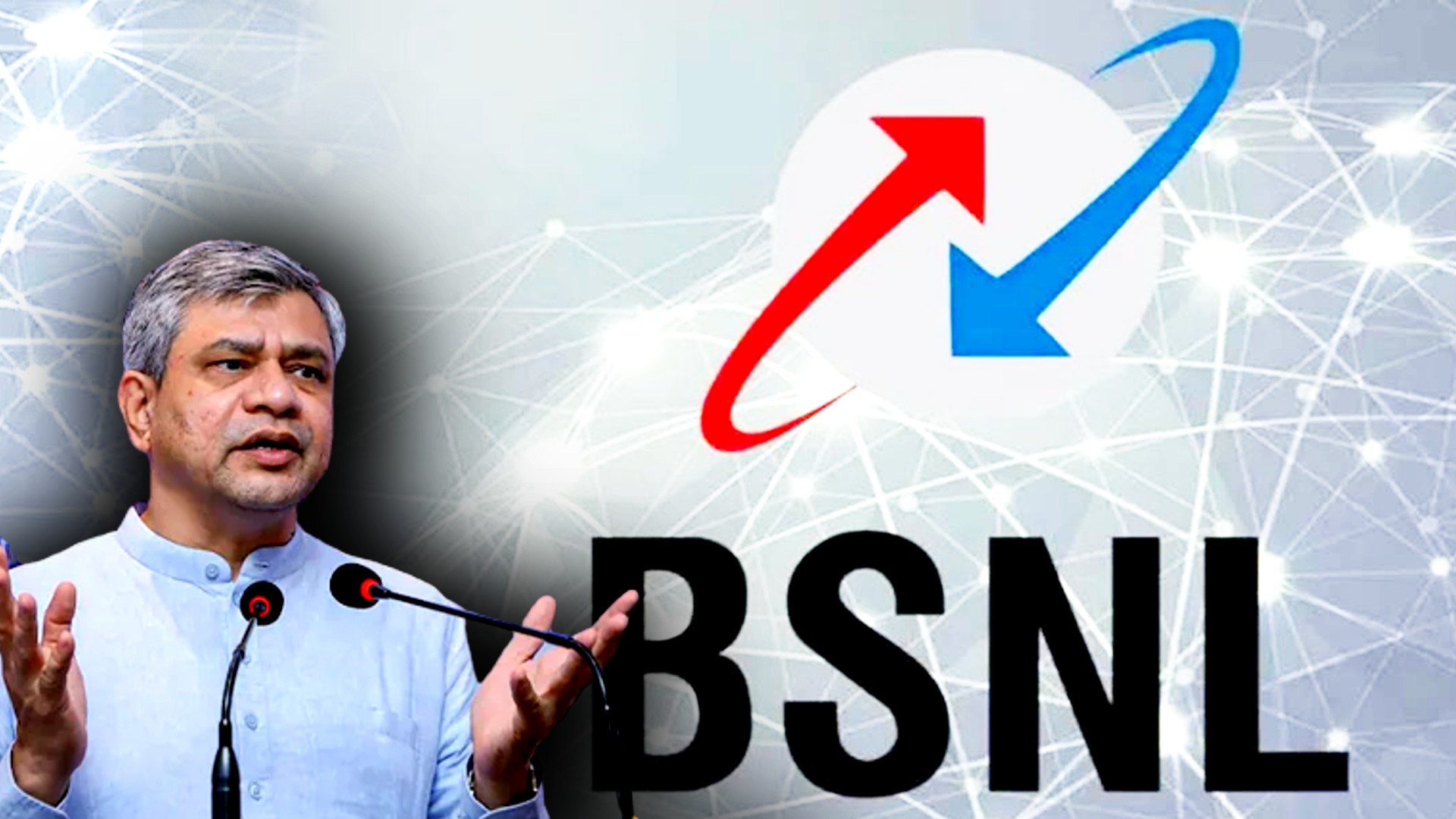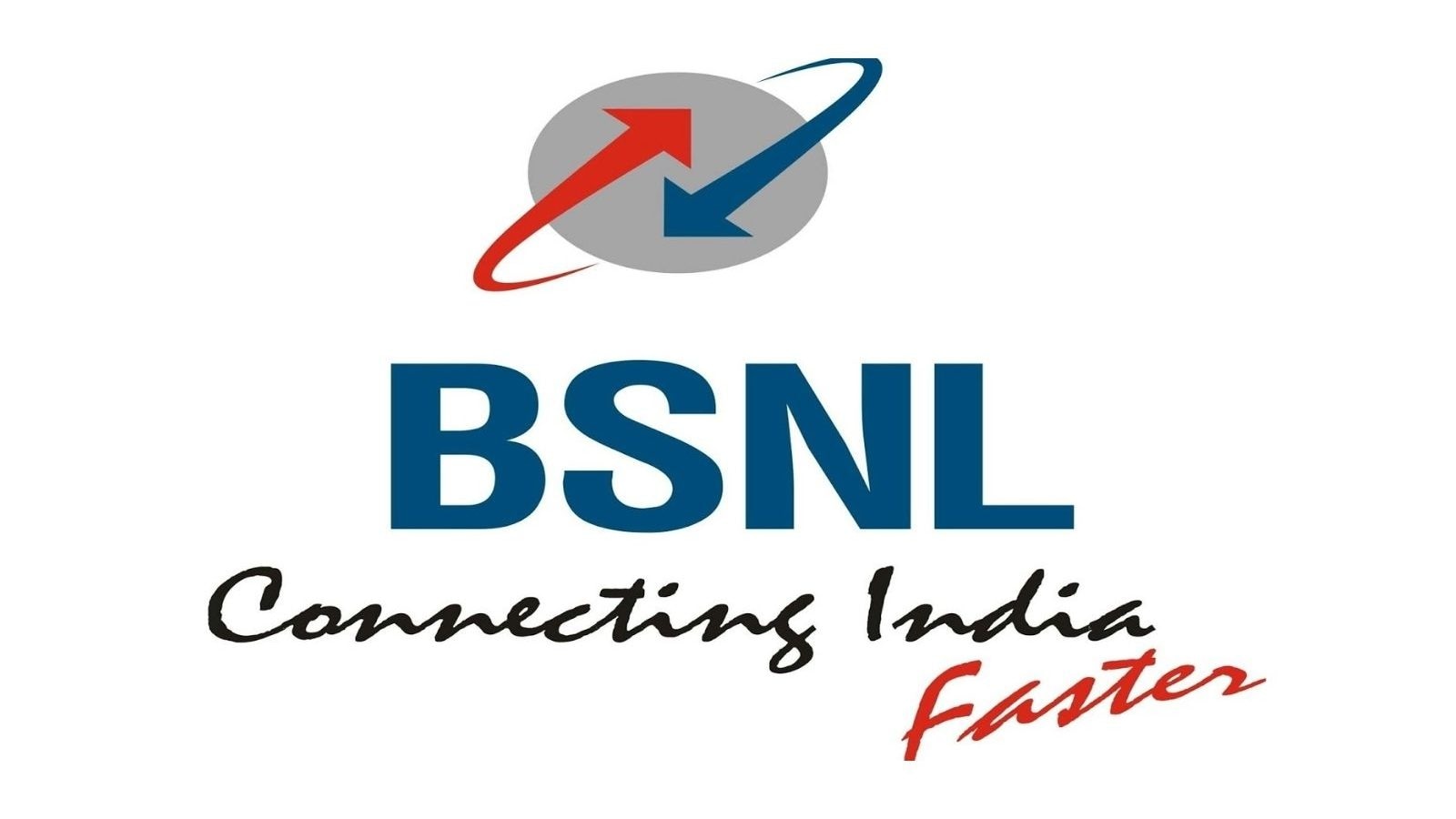BSNL’s Revival Package Of INR 89,047 Crore Approved By Cabinet- Allocation Of 4G/5G Spectrum
A third revitalization package worth 89,047 crore was approved by the Cabinet Committee on Economic Affairs for the government-run operator Bharat Sanchar Nigam Limited to be utilized for 4G/5G spectrum allotment.

According to reports, the Cabinet Committee on Economic Affairs has authorized the 3rd revival plan for Bharat Sanchar Nigam Limited (BSNL), regarded as a significant milestone. This comprehensive plan, which would amount to an aggregate of INR 89,047 crore, aims to revitalize BSL and establish it as a reliable telecom service provider, with a specific attention and emphasis on improving connectedness in rural India. The arrangement includes the transfer of shares to BSNL as a compensation for the 4G/5G spectrum. As part of the rehabilitation plan, BSNL’s authorized capital would be increased significantly, from INR 1,50,000 crore to INR 2,10,000 crore.
The process to resuscitate BSNL and Mahanagar Telephone Nigam Limited (MTNL) began in 2019 with the approval of the first revival package, worth INR 69,000 crore. This package was essential in controlling the activities of the two counterparts. After thereafter, in 2022, the government authorized a second revitalization package for INR 1.64 lakh crore. The financing of capital expenditures, money to reduce the profitability gap for rural telephone lines, the reorganization of debt, settlement of Adjusted Gross Revenue (AGR) dues, as well as the merger of BBNL and BSNL were all included in this comprehensive package.
With the commencement of the fiscal year 2021-2022 (FY 2021-2022), it is thought that these relief measures enabled BSNL return to operational profitability by bringing its total debt decreased from INR 32,944 crore to INR 22,289 crore. BSNL anticipates income of INR 20,699 crore along with a net operating profit of INR 1,599 crore for FY 2022–23.
It is believed that with this spectrum allocation, BSNL will be able to offer 4G as well as 5G services all over the country and increase 4G coverage in remote as well as rural regions. Additionally, by delivering special services and spectrum, BSNL can meet the needs of Captive Non-Public Network (CNPN) and supply Fixed Wireless Access (FWA) capabilities to provide high-speed internet access.

According to recent rumors, the Indian government is also thinking of shutting down MTNL and transferring its operations and staff to BSNL. MTNL has struggled to improve its status despite receiving government support. MTNL released financial data for the fourth quarter and the complete year ending March 31, 2023. The telecom reported revenues during the fourth quarter of INR 2,191.8 million, compared to INR 2,385.9 million during the previous quarter. According to reports, from INR 5,198.8 million to INR 4,181.4 million, revenue fell.
While BSNL’s financial status has only slightly improved in recent years. With government funding of INR 1.64 trillion in 2021 and an upcoming arrangement for 4G technology for INR 15,000 crore, BSNL is considered to be on track to recover.
With the release of the 4G/5G spectrum and the adoption of the 3rd revitalization plan by the union cabinet under the leadership of PM Modi, a crucial turning point in BSNL’s recovery is expected by the government. According to BJP, this financial support for the company’s rebirth might strengthen its reputation as a dependable telecom service provider while other big telecom operators like Airtel and Jio have already begun carrying out their 5G services over the whole nation.
According to communications and IT minister Ashwini Vaishnaw, it is now time for BSNL to compete with the nation’s main companies and offer things that others do not. He stated that in order for the provider to compete in the industry on its own, it will need to offer quality services. Airtel as well as Reliance Jio in India have already started providing 5G services at 200,000 locations nationwide.

Through this spectrum allocation, BSNL will be able to offer 4G, 5G, fixed wireless connectivity, captive non-public networks, and coverage in remote and undeveloped areas across all of India, he continued. Equipment worth 1 lakh 4G stations has already been ordered by BSNL from TCS-CDoT and ITI for around INR 19,000 crore. Vaishnaw claimed that BSNL is expected to be debt-free in the next three years and added that the state will neither inject any more equity or issue any more debt that is supported by the government.
According to PK Purwar, chairman and managing director of BSNL, internal accruals would be used to reduce the debt. By the conclusion of FY23, the debt was down by INR 10,000 crore coming to INR 22,289 crore. To be able to remain viable in the market, he noted, the carrier would redesign its IT, HR, and technological systems within a period of six months in order to render them customer-friendly. According to the minister, 200 locations have received 4G and 5G installations, which are going to be assessed live for a period of three months before being rapidly deployed. Additionally, he mentioned that 3G will be discontinued, like other private players have already done.

Union minister Piyush Goyal told the reporters during a Cabinet meeting that BSNL has 4G connectivity in several areas of the nation and is close to reaching statewide coverage. The concerned ministry will give further details on 5G. According to the minister, BSNL is anticipated to transform into a reliable telecommunication supplier with an emphasis on bringing connection to off-the-grid parts of India with the execution of this revitalization package.
This government program is being implemented at a time when BSNL is struggling with insufficient resources and had been requesting financial aid from the authorities for a considerable amount of time. Due to the fact that its rivals have already introduced 4G services at competitive costs for phone calls and data, BSNL has had to contend with strong competition from private telecommunication giants like Reliance Jio, Bharti Airtel, as well as Vodafone Idea.
This development comes after BSNL along with Tata Consultancy Services (TCS) signed a collaboration agreement for the national rollout of a 4G network. The drive for 4G by BSNL is anticipated to provide its rivals, who are actively deploying 5G services throughout India, fierce competition. The statement further emphasized that BSNL would be able to establish itself as a dependable telecommunication supplier with a particular emphasis on connection in the country’s most distant regions thanks to this revival plan.
Way Forward for BSNL
The Center anticipates that BSNL will eventually be able to provide 4G services, enhance the quality of its current offerings, and achieve financial viability with the help of these initiatives. It further anticipates that when this resuscitation strategy is put into action, BSNL would recover and produce a profit in 2026–2027 (April–March). Additionally, they think that BSNL would become a reliable telecom service provider with an emphasis on bringing connection to India’s most rural regions with the help of this resurrection package.

Such executives ought to be given the freedom to make autonomous judgments and develop the business. Employees who are unable to adapt to the new telecom reality must go. There should be no room for marketing executives who are unable of developing a customer-centric strategy, engineers and technicians that are incapable of innovating for the future, employees who are filling vacant jobs, and senior executives who are incapable of directing the company’s turnaround strategy.
All employees ought to be judged according to set performance standards. The company should develop a merit-based culture. Recruitment and promotion decisions should always be made solely on the basis of merit. Dedicated employees’ morale will rise as a result. However, BSNL need morally upright executives who can create open and efficient governance practices if it is to prosper.




